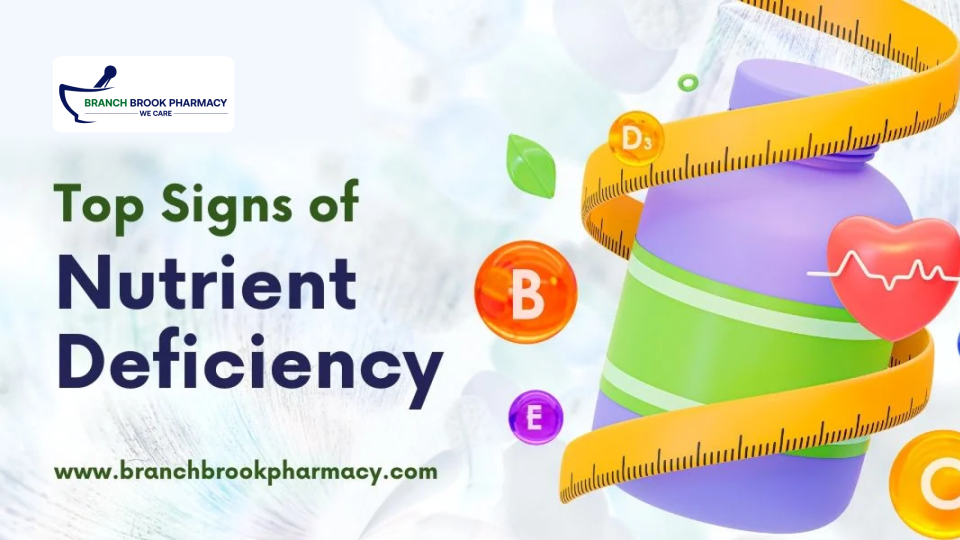
In today’s fast-paced world, nutrient deficiency is often overlooked, with its symptoms mistaken for the inevitable byproducts of a busy lifestyle. However, ensuring our bodies receive adequate nutrients is essential for overall health and well-being. Without proper nutrition, deficiencies in vitamins, minerals, and other essential nutrients can lead to a variety of health problems, from mild symptoms to severe conditions.
This comprehensive guide explores the signs and symptoms of nutrient deficiency, its causes, and actionable steps to prevent and address it. By understanding the impact of deficiencies, you can take proactive measures to support your body’s health and functionality.
What is Nutrient Deficiency?
Nutrient deficiency occurs when the body does not receive an adequate supply of essential nutrients, such as vitamins, minerals, proteins, carbohydrates, and fats. These substances are crucial for maintaining energy, supporting immune function, and enabling the body’s systems to operate efficiently.
When you don’t consume enough of these vital nutrients through your diet, your body begins to exhibit symptoms signaling the imbalance. Unfortunately, many of these symptoms are dismissed as general fatigue or stress, making it important to recognize the signs of nutrient deficiency early.
Common Causes of Nutrient Deficiency

Several factors contribute to nutrient deficiency, including:
- Poor Diet: Consuming a diet high in processed foods and low in fruits, vegetables, and whole grains limits your intake of essential nutrients.
- Chronic Diseases: Conditions like diabetes, Crohn’s disease, or kidney disorders can interfere with nutrient absorption.
- Aging: Older adults often experience reduced calorie needs but require higher levels of certain nutrients.
- Lifestyle Factors: Smoking, excessive alcohol consumption, and high caffeine intake can deplete nutrient levels.
- Medications: Some drugs interfere with the absorption of key vitamins and minerals.
Understanding these causes helps identify potential areas for improvement in your diet and lifestyle to address nutrient deficiency.
10 Common Signs of Nutrient Deficiency
- Fatigue and Weakness
A lack of energy-boosting nutrients like iron, magnesium, and vitamins B12 and D can leave you feeling perpetually tired and weak. Persistent fatigue is often one of the earliest signs of nutrient deficiency.
- Dry or Pale Skin
Deficiencies in vitamin A, B vitamins, and essential fatty acids can lead to dry, scaly, or pale skin. Skin issues like rashes and acne may also indicate a lack of vital nutrients.
- Hair and Nail Problems
Thin, brittle hair or weak, discolored nails may result from insufficient zinc, biotin, and iron intake. Nutrient deficiency in these areas often manifests visibly.
- Poor Immune Function
Frequent colds, infections, or slow recovery times can signal weakened immunity caused by deficiencies in vitamins C, D, and zinc.
- Digestive Problems
A lack of fiber, magnesium, or probiotics can result in bloating, constipation, diarrhea, or other gastrointestinal issues, indicating potential nutrient deficiency.
- Mood Changes
Deficiencies in omega-3 fatty acids, vitamin D, and B vitamins are linked to depression, anxiety, irritability, and mood swings.
- Muscle Weakness and Cramps
Electrolyte imbalances from insufficient magnesium, potassium, or calcium can lead to muscle cramps, spasms, or weakness.
- Vision Problems
Vitamin A deficiency can impair vision, leading to issues like night blindness and dry eyes.
- Bone Loss
Insufficient calcium, vitamin D, and magnesium intake increases the risk of bone loss, osteoporosis, and fractures.
- Slow Wound Healing
Deficiencies in protein, zinc, and vitamin C delay the body’s natural wound-healing process, prolonging recovery from cuts or bruises.
The Long-Term Impact of Nutrient Deficiency
Untreated nutrient deficiency can lead to severe health problems over time. Prolonged deficiencies increase the risk of:
- Anemia: Caused by iron deficiency.
- Osteoporosis: Resulting from insufficient calcium and vitamin D.
- Immune System Dysfunction: Making the body more vulnerable to infections.
- Cognitive Decline: Linked to vitamin B12 deficiency.
Recognizing the long-term consequences underscores the importance of addressing nutrient deficiency proactively.
Preventing Nutrient Deficiency
Preventing nutrient deficiency starts with adopting a balanced diet rich in diverse food groups. Here are actionable tips:
- Eat Nutrient-Dense Foods: Prioritize whole foods like fruits, vegetables, lean proteins, whole grains, and healthy fats.
- Focus on Variety: Incorporate a range of foods to cover all nutrient bases.
- Limit Processed Foods: Reduce intake of high-sugar, low-nutrient options.
- Hydrate Properly: Water supports nutrient transport and absorption.
Nutrient Deficiency in Older Adults
Older adults are particularly vulnerable to nutrient deficiency due to decreased appetite and absorption issues. Essential nutrients for older adults include:
- B Vitamins: To support energy and cognitive function.
- Calcium: To maintain bone density.
- Vitamin D: To improve calcium absorption and support immunity.
A tailored approach to nutrition helps older individuals meet their unique dietary needs.
Using Supplements to Address Nutrient Deficiency
In some cases, supplements can help bridge the gap between dietary intake and nutritional requirements. Key points to consider:
- Consult a Professional: A healthcare provider can assess your nutrient levels through blood tests and recommend appropriate supplements.
- Choose High-Quality Products: Look for trusted brands with verified ingredients.
- Avoid Overuse: Stick to the recommended dosages to prevent toxicity.
Supplements are not a substitute for a balanced diet but can play a supportive role in managing nutrient deficiency.
The Role of Healthcare Professionals
If you suspect a nutrient deficiency, consulting a healthcare provider is essential. They can perform tests to identify deficiencies and create a personalized nutrition plan. A registered dietitian can also offer guidance on improving your dietary habits to prevent future deficiencies.



